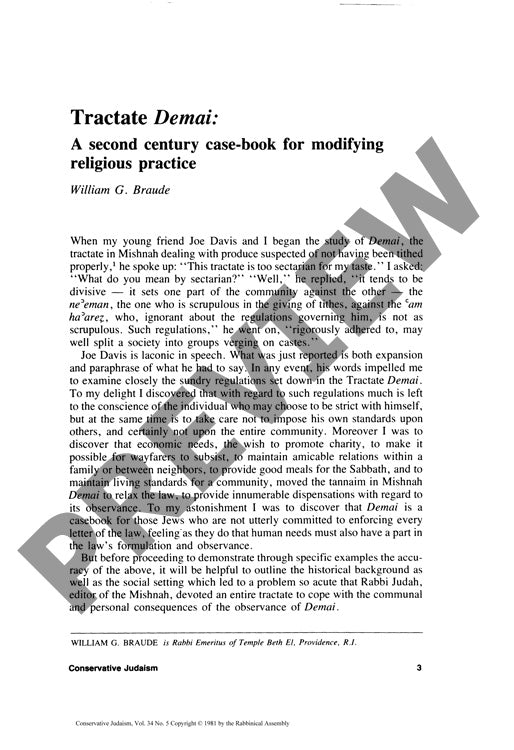Tractate Demai a Second Century Case Boo
Couldn't load pickup availability
Tractate Demai, far from enforcing rigid religious divisions, emerges as a sophisticated legal framework designed to unite rather than fragment Jewish communities in second-century Palestine. Through systematic examination of specific rulings within the tractate, this research challenges the widespread view of rabbinic law as inherently sectarian. Close textual analysis traces the development of these regulations from post-exilic times through the Hasmonean era to their codification under Rabbi Judah, revealing a system that consistently prioritized moderation over strict enforcement. The Tannaim incorporated numerous leniencies regarding produce suspected of improper tithing, accommodating economic necessities, charitable obligations, family harmony, and social cohesion. These provisions included permitting untithed produce for the poor and wayfarers, allowing commercial flexibility for merchants, and creating dispensations to maintain peaceful relations between the "learned" (ne'eman) and "unlearned" (am ha'aretz) segments of society. The tractate ultimately represents a calculated effort to prevent the development of hostile social castes, offering a model of rabbinic jurisprudence that balanced legal observance with human needs—emphasizing humaneness over severity.

More Information
-
Physical Description
-
Publication Information
Published 1981
ISBN
-
Publication Credits
William Braude

